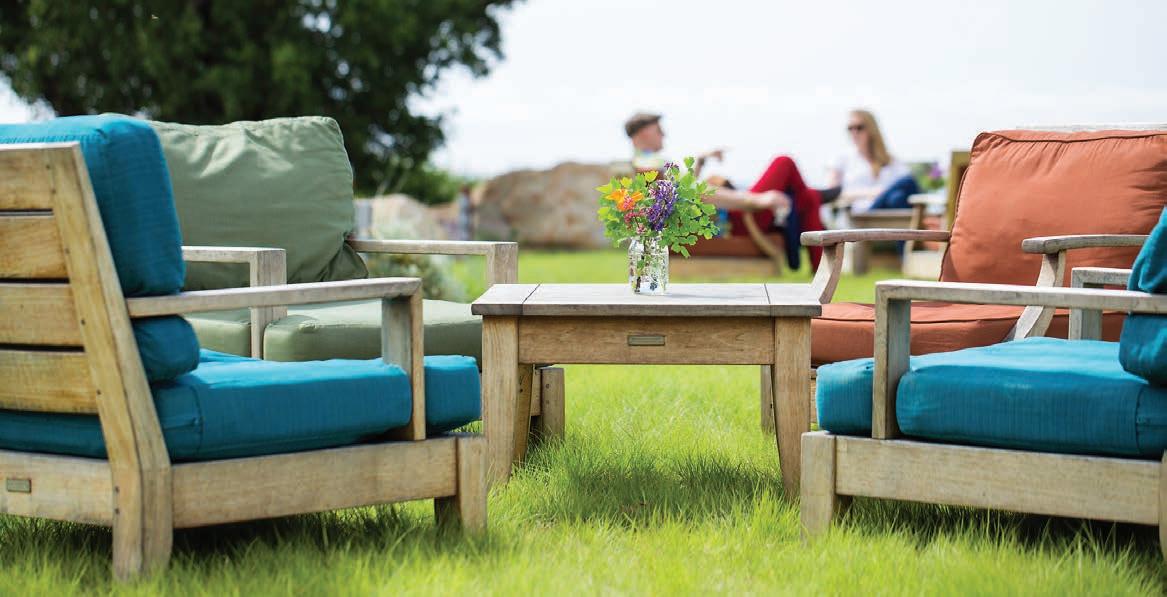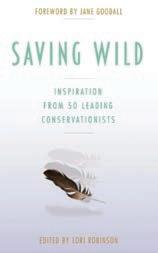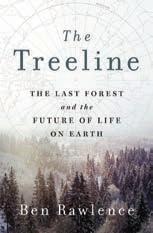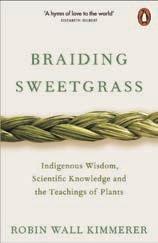
4 minute read
The Book Nook Our Latest Book Recommendations
By: The Garden Staff

“Saving Wild: Inspiration From 50 Leading Conservationists” Lori Robinson
There’s no way to sugarcoat it — our environmental issues are daunting. How can we reverse climate change, save species, and restore our land and sea? Many of us wonder, “How do we begin to solve what seem like unsolvable problems?” At times the question is overwhelming. “Saving Wild” by Lori Robinson looks at this very issue through the lens of 50 of the world’s leading environmentalists, conservationists, and activists. Each chapter is written by a different author who shares what inspires them to keep moving forward with their work. Each new perspective inspires hope and the prose inspires action. Because hope is not lost. There is work being done all over the globe, and it’s making a difference. Collectively, our actions have ripple effects and can create large-scale change. We truly have the power to course correct and make the planet a better place. You’ll find yourself coming back to chapters over and over again, finding new words of wisdom each time.
Recommended by Jenny McClure, Donor Relations Manager

“The Treeline: The Last Forest and the Future of Life on Earth” Ben Rawlence
For decades, the trees of the boreal forest have been moving north. Following these shifts of the northernmost forests, “The Treeline” beautifully blends science journalism with a tale of adventure as author Ben Rawlence follows the evolving treeline east. Exploring forests of pine, birch, larch, and spruce, he faces head-on the impacts of climate change on the boundaries and biodiversity of Earth’s forests. Speaking with botanists, glaciologists, and indigenous people along the way, “The Treeline” is a tribute to the beauty and majesty of the forest’s inner workings and how closely tied its health is to our own. This is a page-turner that forces us to pay attention to our personal connection to the natural world and what we are doing (and not doing) to protect this precious resource for ourselves and for future generations. After all, the future of all life on Earth depends on it.
Recommended by Sam Babcock, 2022 Garden Volunteer of the Year

“Braiding Sweetgrass: Indigenous Wisdom, Scientific Knowledge, and the Teachings of Plants” Robin Wall Kimmerer, Ph.D.
Author Robin Wall Kimmerer, Ph.D., slows the pace and awakens gratitude within the readers of her memoir, “Braiding Sweetgrass: Indigenous Wisdom, Scientific Knowledge, and the Teachings of Plants.” She approaches her environment through the lens of her Potawatomi heritage to ask, “How can we heal the earth?” — but also, and perhaps more importantly, “How can the earth heal us?” Her book is a succession of essays that leave no stone unturned in her journey to impart sacred indigenous knowledge, Western scientific perspectives, and her own personal experiences with the natural world. Approaching this work with an open heart will be rewarded with an intimate viewpoint through which to experience connection, reverence, and an appreciation for the plants around us.
Recommended by Danielle Ward, Lichenarium Technician

“Garden Allies: The Insects, Birds, and Other Animals That Keep Your Garden Beautiful and Thriving” Frédérique Lavoipierre
“Climate change, pandemics, and other stresses of contemporary life have increasingly turned us to our gardens for solace, for recreation, to create wildlife habitat, and to provide food for our tables. Now is the time to learn how to garden in a manner that supports continued life on the planet.” Wise words from Frédérique Lavoipierre’s “Garden Allies,” which will introduce you to the many fascinating forms of life in your garden and the important jobs that they do — from bees and wasps, to springtails and potato bugs, to lacewings and katydids. Introductory material covers basic concepts and sustainability tips, while lovely black-and-white stippled illustrations highlight each organism of interest. Full of fun facts about different insect groups and other garden life forms, this book will be useful for both beginners and more seasoned naturalists.
Recommended by Denise Knapp, Director of Conservation and Research










